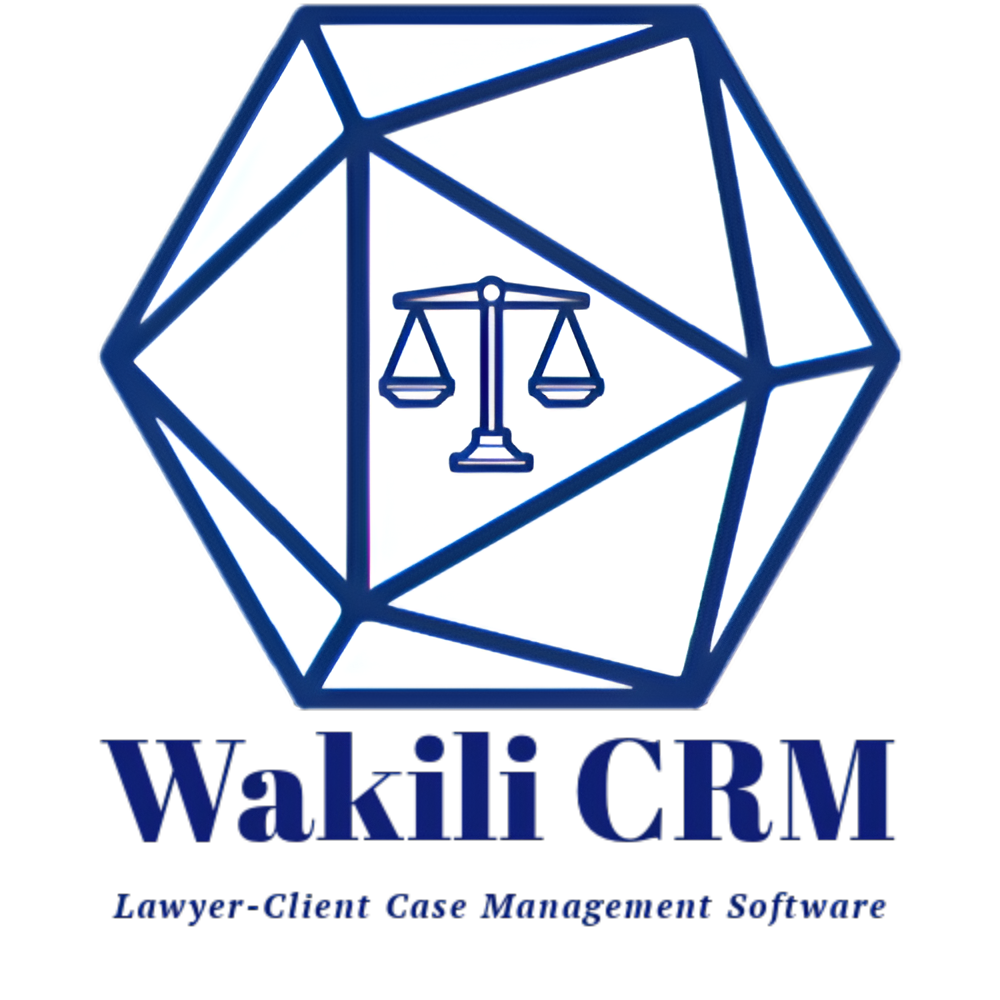Introduction: A New Era for Kenyan Courtrooms
The courtroom has long been seen as the sanctuary of human reasoning, argument, and deliberation. In Kenya, this tradition remains strong — characterized by impassioned advocacy, detailed case law citations, and careful judicial pronouncements. But quietly, and often invisibly, a new player has entered the halls of justice: Artificial Intelligence (AI). From document analysis and case management to e-filing systems and judgment research, AI is beginning to reshape the mechanics of legal work in Kenya.
While adoption is still at an early stage compared to countries like the United States, Canada, or the United Kingdom, the seeds of transformation are already visible. Initiatives like Kenya’s e-filing system, the digitization of court records, and experimental uses of machine learning in judicial workflows point to a future where AI will not merely assist lawyers and judges — it will become an indispensable infrastructure of justice delivery.
For legal practitioners, the question is no longer whether AI will affect their practice. It’s how soon, how deeply, and how responsibly they will adapt. In this article, we explore the rise of AI in Kenyan courtrooms, what lawyers need to know, and how embracing smart technology platforms like Wakili CRM can offer a critical advantage.
Understanding AI's Entry into the Kenyan Judiciary
Artificial Intelligence might conjure images of robots delivering verdicts or computers making sentencing decisions. But in Kenya's judicial environment, AI's entry has been much more pragmatic, targeted at solving chronic operational inefficiencies.
Consider the Judiciary’s e-filing system launched in Nairobi in 2020 and gradually expanded to other regions. This system, while not fully AI-driven, introduced digital workflows that prepared the courts for more advanced technologies — like document sorting algorithms, predictive case scheduling, and AI-powered research assistants.
At the heart of AI’s growth in the Kenyan legal sector are several use cases:
-
Document automation and analysis: Tools that sort, tag, and prioritize filings based on urgency, type, or completeness.
-
Judicial analytics: Platforms that aggregate case law, track judicial decisions, and identify patterns — supporting judges and lawyers in crafting arguments or understanding case trends.
-
Virtual hearings: AI-driven scheduling, participant verification, and transcript generation are helping courts manage remote proceedings with greater efficiency.
-
Legal research tools: AI engines that search across millions of case files, judgments, and statutes to retrieve the most relevant precedents faster than traditional manual research.
While full AI-based adjudication — where machines issue rulings — remains unlikely and controversial in Kenya’s constitutional framework, supportive AI is quietly becoming an irreplaceable part of legal work.
For lawyers, staying ignorant of these developments is a strategic risk. The ability to navigate AI-driven court systems will soon become a standard competency, just like drafting pleadings or cross-examining witnesses.
Practical Examples: How AI Is Already Changing Legal Practice
Even for firms and advocates who haven't consciously "adopted" AI, its influence is increasingly unavoidable.
Take, for example, the speed with which law firms now have to respond to electronic filing deadlines. When a court issues a last-minute notice via an automated case management system, lawyers must not only draft responses quickly but ensure that those documents meet formatting and procedural standards enforced by AI-driven checks.
Another growing trend is e-discovery in litigation. In complex commercial or constitutional disputes, massive volumes of evidence — emails, contracts, financial records — must be reviewed. Without AI-assisted review tools, this task can take weeks. With AI, lawyers can prioritize relevant documents, identify anomalies, and construct arguments in a fraction of the time, giving their clients a tangible competitive advantage.
Moreover, clients themselves are becoming more tech-savvy. Corporate clients, in particular, expect law firms to leverage AI for contract analysis, compliance monitoring, and risk assessment. Firms that cling to manual-only processes risk appearing outdated or inefficient, hurting their client acquisition and retention efforts.
Wakili CRM, through its AI document analysis and integrated legal research center, offers law firms a gateway into this new operational reality. Instead of fearing AI, firms can embed it into their case workflows — ensuring better preparation, faster turnaround, and more persuasive outcomes.
The bottom line? AI is no longer an abstract idea. It's already rewiring the practice of law in Kenya — subtly, but permanently.
Ethical and Professional Considerations for Lawyers Using AI
While AI promises efficiency and insight, it also raises profound ethical questions for Kenyan lawyers. Central to legal ethics is the duty of competence, confidentiality, and client loyalty. AI tools — especially those handling sensitive case data — must be scrutinized through this lens.
One of the first ethical imperatives is informed decision-making. Lawyers must understand how the AI tools they use function, what data they collect, and what biases they might introduce. Blindly trusting outputs from an AI system, without human review, can lead to misrepresentations before a court — and professional liability.
Confidentiality presents another concern. Many AI systems rely on cloud storage or data-sharing processes that could expose sensitive client information if not properly secured. Kenya's Data Protection Act makes it clear: legal practitioners are data controllers under the law, responsible for safeguarding client information. Choosing platforms that meet encryption and compliance standards — like Wakili CRM’s secured environment — is not optional. It’s mandatory.
Finally, lawyers must resist the temptation to allow AI tools to substitute critical thinking. While predictive analytics and drafting suggestions can save time, they must not replace the careful, context-specific reasoning that defines good lawyering. AI is a powerful assistant — not a substitute for human judgment.
The Kenyan legal profession has long been a guardian of constitutionalism and human dignity. As AI becomes part of its toolkit, ethical stewardship will be critical to ensuring that technology enhances justice — rather than undermining it.
How Law Firms Can Adapt to AI-Driven Court Systems
The integration of AI into Kenyan courtrooms isn't a distant future scenario — it’s an ongoing evolution. Law firms that recognize this shift early, and adapt their operations accordingly, will position themselves not only for survival but for leadership in the next era of legal practice.
The first step is digital readiness. Firms must migrate from paper-based and fragmented operations to centralized, cloud-based systems that align with the judiciary’s increasingly digital infrastructure. If courts demand e-filing, your firm must be able to generate compliant documents, manage case deadlines digitally, and respond to procedural notices in real time. Systems like Wakili CRM — which consolidate case files, court dates, client communications, and billing in one platform — offer firms this agility.
Next is skill development. Lawyers must develop basic AI literacy. This doesn’t mean becoming programmers or data scientists. It means understanding how AI tools work, recognizing their strengths and limitations, and integrating them thoughtfully into legal workflows. Firms that encourage continuous legal tech education will outpace those that resist change.
Finally, law firms must reimagine client service in a tech-driven age. Clients — especially corporates, startups, and NGOs — expect more than court representation. They want strategic advice on how emerging technologies (including AI) affect their contracts, operations, and compliance obligations. Firms that understand AI in law, and can explain its implications to clients, will become indispensable advisors, not just service providers.
Adaptation isn’t about abandoning the core values of law — diligence, advocacy, ethics. It’s about enhancing them with tools that make legal service faster, smarter, and more accessible.
The Role of Wakili CRM in Preparing Law Firms for the Future
Adapting to AI-driven courtrooms and client expectations requires more than good intentions — it demands the right technological foundation. Wakili CRM is designed precisely for this moment: helping Kenyan law firms modernize without losing their professional soul.
First, Wakili CRM provides a centralized, cloud-based case management platform that mirrors the workflow transformations happening in the judiciary. Filing deadlines, document templates, client communication — all synchronized and accessible from anywhere, with full audit trails.
Second, Wakili CRM’s AI document analysis feature brings intelligent assistance directly into the firm’s operations. Lawyers can upload affidavits, contracts, or pleadings, and receive structured summaries, clause recognition, and drafting improvement suggestions — saving critical time when responding to AI-driven court deadlines or digital discovery requests.
Third, Wakili CRM strengthens legal research capabilities through its integrated Legal Research Center. Instead of relying on outdated resources, lawyers can conduct rapid precedent searches inside the platform — boosting efficiency and improving argument strength before increasingly data-savvy judges.
Moreover, Wakili CRM’s secure communication tools align with the confidentiality standards demanded by both Kenya’s Data Protection Act and emerging digital court protocols. Internal and external messages stay encrypted, logged, and linked to the correct cases.
In short, Wakili CRM doesn’t just help law firms survive the AI transformation. It helps them thrive — ethically, strategically, and competitively.
Challenges to Watch: Risks of Overreliance on AI
While AI offers immense operational advantages, it is not without risks. Lawyers, courts, and clients must approach this technological wave with critical, informed caution.
One major risk is overreliance on AI outputs without sufficient human oversight. Predictive analytics might suggest likely case outcomes, but human judgment is still needed to assess nuances — social, political, or procedural — that no algorithm can fully capture.
Another risk is data bias. AI systems learn from historical data, which may embed past prejudices, errors, or systemic inequalities. For example, an AI tool trained on previous judicial decisions might unknowingly reinforce outdated interpretations of labor law or constitutional rights if not properly calibrated. Legal practitioners must remain vigilant, ensuring that AI serves justice rather than distorting it.
Thirdly, client expectations can become unrealistic. As clients hear about AI’s capabilities, they may expect instant results, perfect predictions, or cut-rate legal fees. Firms must manage these expectations carefully — explaining what AI can and cannot do, and reaffirming the irreplaceable value of skilled human advocacy.
Wakili CRM understands these dynamics. Its AI tools are designed to support — not replace — the critical thinking, ethical judgment, and human connection that define excellent lawyering. Firms that succeed will be those who strike the right balance: leveraging technology intelligently, while preserving professional integrity.
Conclusion
The rise of AI in Kenyan courtrooms signals not the end of traditional legal practice — but its evolution. As court systems modernize, as clients demand faster and smarter services, and as global standards reshape data security and professional ethics, law firms must choose: adapt or fall behind.
The good news is that the path forward is not a leap into the unknown. It’s a structured, strategic journey — one that begins with building digital capacity, investing in AI literacy, protecting client confidentiality, and adopting the right legal technology platforms.
Wakili CRM stands ready to guide your firm into this future. By offering case management, AI analysis, secure communications, and research tools in one powerful platform, Wakili CRM ensures that Kenyan lawyers can remain competitive, compliant, and client-centered — even as the courtroom itself evolves.
The future is not optional. It’s already unfolding.
👉 Register now for a free trial of Wakili CRM — and take the first step toward mastering the next era of legal practice.
Your clients, your partners, and your profession are counting on it.


Comments
No comments yet. Be the first to comment!